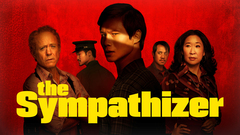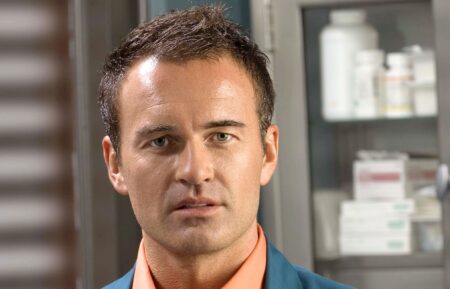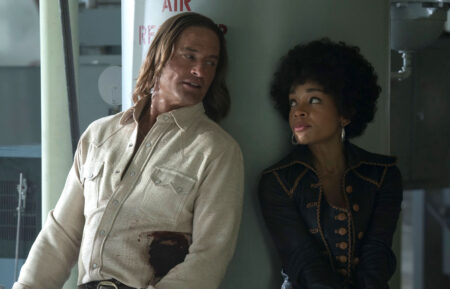‘The Sympathizer’: Sandra Oh & Hoa Xuande Explain Why Racist Movie Is ‘Painful’ & ‘Satisfying’ in Episode 4
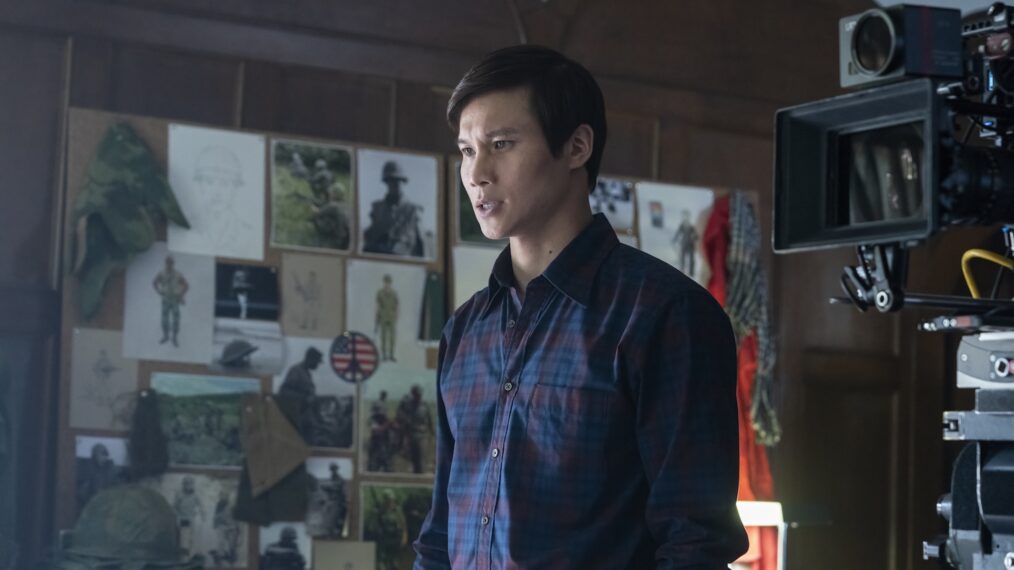
Spoiler Alert
[Warning: The following contains MAJOR spoilers for The Sympathizer Season 1 Episode 4, “Give Us Some Good Lines.”]
The Sympathizer Episode 4 is one of the best episodes of 2024 so far. The episode breaks form from its previous installments and plants the Captain (Hoa Xuande), a double agent pretending to be loyal to the Southern Vietnamese cause and its CIA allies, on the set of an American-made Vietnam War movie directed by Nikos Damianos (the fourth of Robert Downey Jr.‘s characters).
The Captain was hired as the cultural consultant for The Hamlet, a noteworthy section of Viet Thanh Nguyen’s Pulitzer Prize-winning novel. As the man in charge of representing the Vietnamese community, the Captain was in a unique position to both witness the racist depiction of Vietnamese people in this film and do something about it. What resulted in the making of this Apocalypse Now-style movie was a meta commentary that criticizes how Hollywood portrayed the Vietnam War in films for decades in real life, while simultaneously being a searing critique on Asian representation (and lack thereof) in films.
The Hamlet feels like a recreation of some of the things viewers did see in the earlier episodes before the fall of Saigon, and it comes with David Duchovny as a method actor whose “commitment to his craft” stretches beyond the limits of morality and John Cho as an actor who’s always being killed by white actors in his movies (The Hamlet, unfortunately, is no different for him).
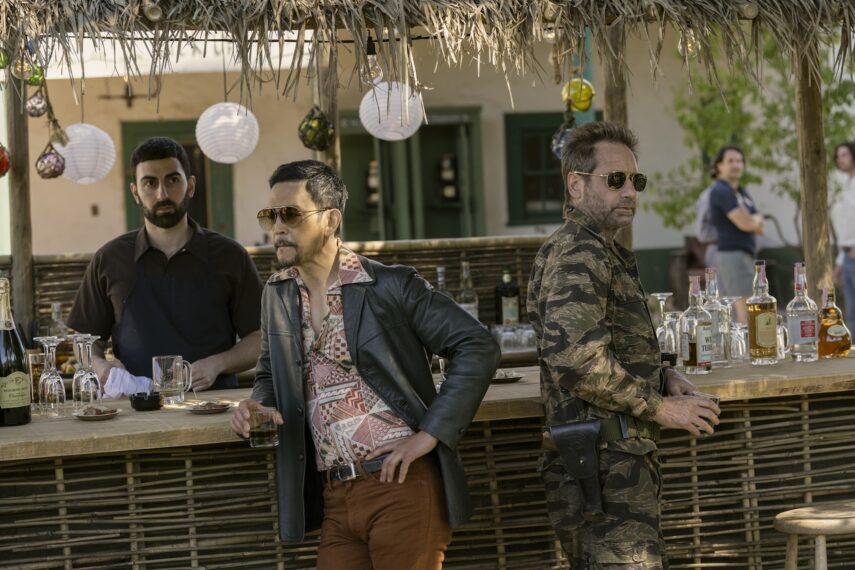
John Cho and David Duchovny as the stars of the fictional film The Hamlet in The Sympathizer Episode 4 (Hopper Stone / HBO)
Sandra Oh told journalists ahead of the premiere that Episode 4 is “so satisfying” because of its “high satire, but it’s very painful. But why it’s satisfying is that it’s all from the Captain’s perspective.”
One of many confounding errors made by the mostly white film staff was that they didn’t hire Vietnamese people to play the Vietnamese background actors. Because of that, no one could ad-lib lines in Vietnamese. The Captain had to point out that one woman was speaking Chinese in an intense scene. That had to be swiftly rectified. The Captain brought members of the Vietnamese refugee community in Los Angeles on set to play these background roles. Because Nikos and most of the staff knew absolutely zero Vietnamese, the Captain and his cast could play with language to ridicule their racism without them knowing.
Oh says that this was “deeply satisfying” to see because it taps into a familiar experience for Asian actors. While the industry is much more representative of global cultures now, there’s still a lot of work to be done. Case in point: The Sympathizer is one of the first times we’ve ever seen the Vietnamese language significantly used in dialogue on-screen, and yet there have been scores of movies about the Vietnam War since it ended in April 1975. Oh says that Nikos’ (also called “the Auteur”) racism is part of the point they’re making in The Sympathizer, noting the uniqueness of experiencing this in detail from the Captain’s point of view. It highlights “how ridiculous it was” that men like Nikos got away with baking so much racism into their films.
“The Auteur is throwing just racist points of view left and right as it is normal for him at that time, so you see the Captain rolling his eyes or gritting his teeth or not saying anything, but you’re inside of his story, right? So what’s satisfying is that it doesn’t hurt me, what the Auteur has to say,” Oh tells journalists.
“People who understand what those micro-aggressions are and have had to deal with just rubbing it off your shoulders and pretending like it’s all OK, that’s just part of the culture, can relate to just accepting that this is the way things are and never having a different point of view,” Xuande adds. “And then when you finally see someone through the Captain’s eyes, who’s in a position to be able to do something, how hard it is to even combat that system, that’s what makes it funny that these systems just won’t move. Even in the face of telling stories that are about a certain people even they’re not allowed to have a voice on their own story.”
Xuande and Oh share their thoughts on the use of language in The Sympathizer Episode 4.
“The thing that’s actually really funny in the show is when the Captain’s trying to get the Vietcong actors to say a certain line about freedom and independence, the actor, he’s so incensed and angry by the fact that he has to say these lines and he’s just yelling, ‘I have to say this, and I don’t get paid enough!'” Xuande tells TV Insider. “It’s just so funny to me that he’s incensed about the film industry putting him in that situation, having to play something that he doesn’t believe in. But the Auteur loves it and completely dismisses anything about the language or anything about what that story or moment is about.”
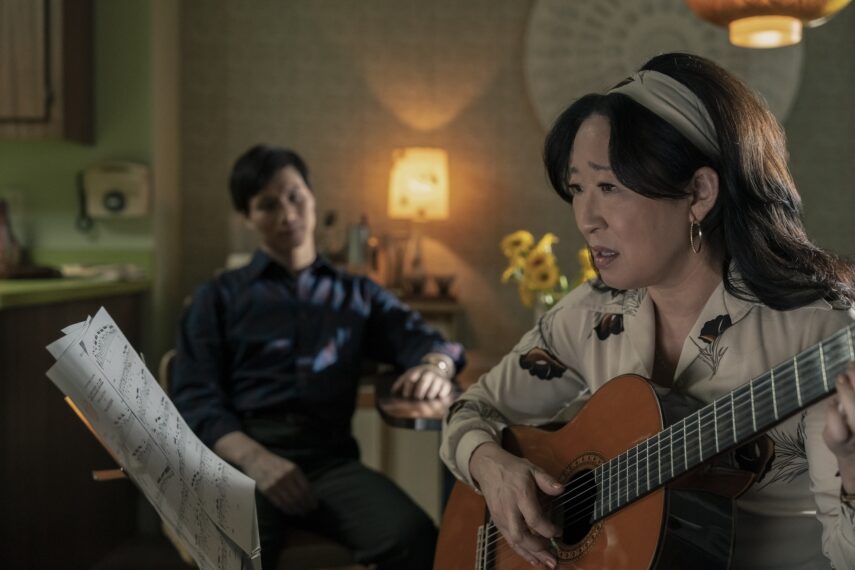
Sandra Oh and Hoa Xuande in The Sympathizer Episode 4 (Hopper Stone / HBO)
“Just trying to capture what he believes the narrative is supposed to be is really telling of what the wider industry has been telling about these stories for a long time,” Xuande continues. “That they’re just capturing these moments that they believe what the story should be as opposed to actually listening in and leaning into what these different perspectives are that haven’t been told for a long time.”
“It’s enjoyable, and also I think it’s extremely sophisticated and extremely meta,” Oh adds, noting that even Downey’s casting adds to the point the series is trying to make.
“One of the meta things is that it’s Robert Downey Jr., who spent a decade of his life playing Iron Man, is playing these archetypes of Western white patriarchy. It’s a very, very bold thing to do, and I think you can get into the commentary of the meta of all that, all the layers of it, and how as the series continues on, the meaning of one actor playing all these characters then starts to really make sense and have a much deeper meaning.”
The Hamlet isn’t filmed in L.A. in the book, but that book change allowed for the Captain to bring in this community viewers have spent three episodes getting to know. Bon (Fred Nguyen Khan), Lana (Vy Le), and more supporting characters all become part of the cast. This, Oh says, automatically makes the viewer care more about their plight and makes Nikos’ buffoonery even more apparent. The contrast of Nikos being one of Hollywood’s most successful directors highlights the racism of the industry.
“We know these people now, so they’re not a faceless nobody,” Oh tells TV Insider. “It hits on a lot of notes where it’s like you can’t ignore these background actors because we’ve spent four episodes with them … and they’re taking the piss!”
The Sympathizer, Sundays, 9/8c, HBO



